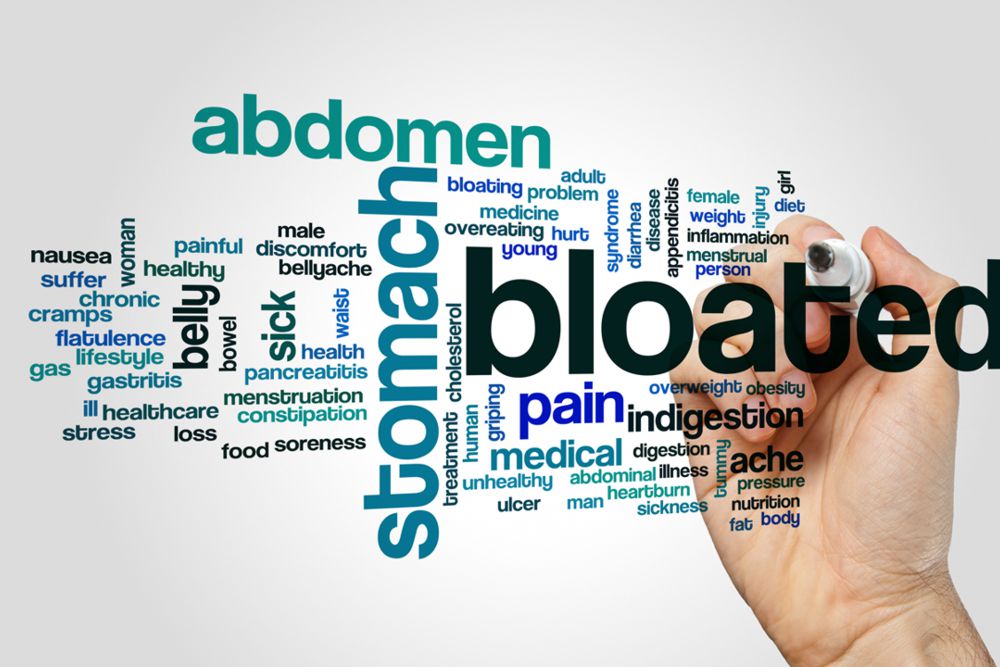
1. Ditch the Gum
When you chew gum, you also swallow a whole heap of air, which can lead to stomach distention.
Plus, sugar free gum – and all sugar free ‘diet’ foods for that matter – contain artificial sweeteners (like aspartame, sorbitol and mannitol), which our bodies aren’t designed to digest…this might explain the stomach discomfort that follows a few too many sugar free sweets.
2. Rethink Your Drink
Alcohol, coffee and carbonated, gas-promoting soft drinks are all gastric irritants. We're not saying you have to give up your morning latte, but it may be worth thinking about how you drink your coffee, as well as the number of potentially stomach-upsetting beverages you’re consuming every day.
Take coffee: On an empty stomach it can be harsher on your gut because it’s very acidic, so try having it soon after breakkie instead. Or, say you drink two coffees and a sparkling water each day; perhaps cut out one coffee and reduce your intake of sparkling water by half for a week to see if your bloating reduces – you can be your own little experiment!
3. Don’t Overload on ‘Difficult to Digest’ Foods
It’s not just junk food that can leave you bloated – certain plant-based foods can have the same impact due to their specific carbohydrate content, which can ferment or ‘go off’ in your gut. This can result in digestive symptoms like bloating, gas, stomach ache and diarrhoea, particularly in those with irritable bowel syndrome.
Common plant-based foods that can have this effect are garlic, onion, cauliflower, legumes, and watermelon, as well as dairy and grains like wheat, barley and rye. Don’t freak out - you don’t necessarily need to cut foods like these out completely; simply cutting back on them can make a huge difference if you’re prone to bloating. If you have rye toast at breakfast for instance, skip the onion in the stir-fry at dinner and swap some mango with more tummy-friendly fruit like strawberries, blueberries or citrus fruit.
4. Eat Herbs
Try to have herbal tea after or between meals, especially a variety that aids digestion. Some digestive herbs you can add in your tea are peppermint - which can work as an anti-spasmodic in the gastrointestinal tract, and ginger. This may help settle the stomach by getting things moving along the digestive tract, providing relief from bloating and nausea.
Your gut may also thank you if you including some fragrant, ‘anti-flatulence’ herbs and spices (fresh or dry) in your cooking; Also know as ‘carminative’ herbs in Ancient Indian Ayurvedic cooking, these are added to traditional lentil-based dishes like dhal to make them easier to digest (and tastier!). Ginger, turmeric, caraway and cardamom are some common ones. There’s also ‘asafoetida’, a unique spice which is quite pungent, but which develops a nice onion-like flavour once cooked in oil, ghee or butter – Great if you’re not good with onion but love the depth of flavour it adds to a dish.
5. Slow Down
Inhaling your food can result in swallowing extra air and subsequent bloating. Not chewing your food properly also means you’re more prone to indigestion and less likely to absorb the nutrients in your meal (because there’s likely to be more undigested food matter going straight through you).